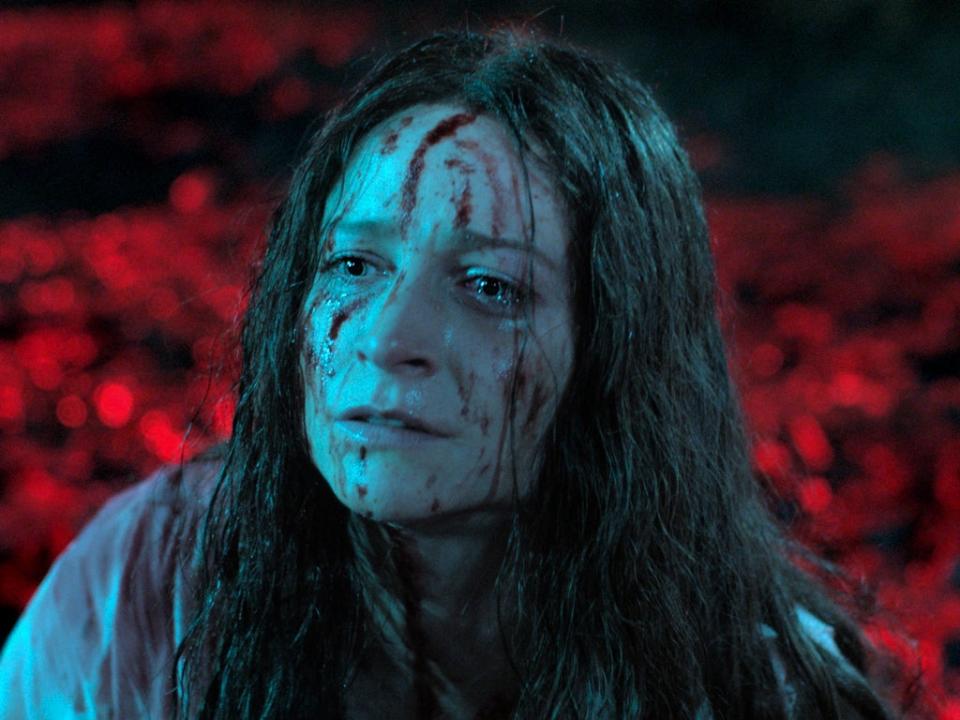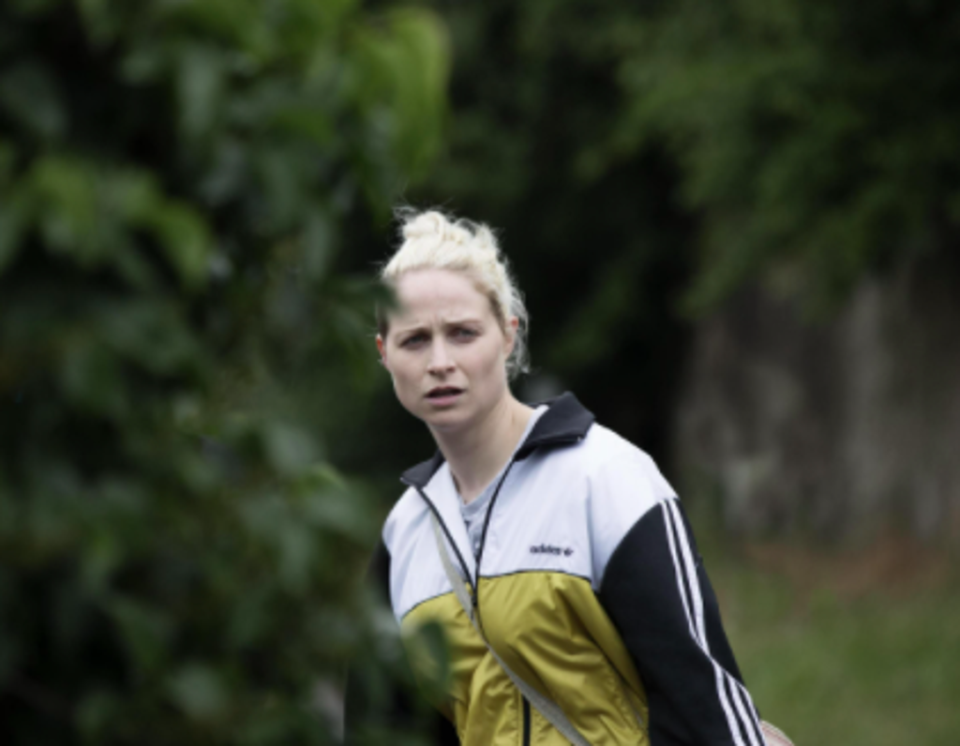Censor: The story behind the best British horror film in years

Sundance Film Festival’s Midnight section has long been the holy grail for any burgeoning horror director. It’s where The Blair Witch Project (1999) kickstarted the found-footage phenomenon, where Saw (2004) launched one of the most successful franchises in history, and, more recently, where It Follows (2014) and Hereditary (2018) were first unleashed, reinvigorating modern horror. Censor, which is released today (20 August), received its world premiere at this year's virtual Sundance, and was a worthy addition to that list. In fact, it is one of the best horror films in years.
Directed by Prano Bailey-Bond, Censor tells the story of Enid (Niamh Algar), a young woman who makes a living tucked away in dingy screening rooms, watching depraved and gory films. On her notepad, she scribbles down the timings of the cuts she thinks need to be made before they’re viewed by the public.
For Enid, this fastidiousness doesn’t stem from a love of film but from a sense of duty. During a tense dinner with her parents, she rebukes her father for suggesting otherwise. “It’s not entertainment,” she snaps. ”I do it to protect people.”
Like any psychological film worth its salt, nothing’s as it seems. The arrival of “video nasty” supremo Frederick North’s new film (creepily titled Don’t Go in the Church) sends Enid spiralling. Before long, she’s on a mission to find a sister who went missing years before. It’s here where the film kicks into gear, leading to one of the most memorable climaxes for quite some time.
The idea of the film germinated “ages ago”, says Bailey-Bond, after she read an article on Hammer, the London-based company known for its gothic films featuring the characters of Dracula, Frankenstein and more.
“It was talking about what the censors looked for in terms of what they’d cut,” she recalls. “One rule in the Hammer horror era was that blood on the breast had to be cut because they thought it would make men likely to commit rape. I was like, ‘OK, so what protects the male film censor from being susceptible to this?’”
It was after extensive research on the subject that the director, who co-wrote the screenplay with Anthony Fletcher, landed on video nasties, low-budget exploitation films in the 1980s that were heavily criticised for their violent content. Such was their mythic quality that younger viewers would seek access to these films, some of which went uncensored for many years.
“I grew up on a diet of The Evil Dead and The Texas Chainsaw Massacre, so it was a no-brainer,” says Bailey-Bond. “But also, the reaction to these films was insane, so it felt like the right place to set it.”
While Nasty, the 2015 short that preceded Censor, focused on a male character, the feature’s lead swiftly became Enid, a part that Algar describes as “a female character I hadn’t seen portrayed before”. The Irish actor, so great in Shane Meadows’ The Virtues (2019) and Nick Rowland’s 2020 film Calm with Horses (known in the US as The Shadow of Violence), is brilliant as the bereft yet alarmingly driven Enid.
This is perhaps best exemplified when Enid first views Don’t Go in the Church. As the projectionist starts the film, it swiftly becomes clear that something’s wrong: through Algar, we see that its characters, setting and situation all look familiar to Enid. Terror grips her face. Tears stream. Her eyes desperately want to stop looking, but can’t.
It turns out Algar was watching an empty screen. “That film was gonna be shot afterwards, so because there was emotional significance to that scene, Prano gave me references,” she says. Bailey-Bond adds: “I asked Niamh, ‘What will make you really uncomfortable? What will you hate to watch?’ and she said, ‘Dogs being hurt.’ So I found this really horrible video of dogs being killed for meat. I was gonna play it if she needed it, but we didn’t use it in the end because Niamh’s amazing. I remember watching the monitor thinking, ‘This is incredible – she’s imagining watching a film that isn’t in front of her.’”

Censorship has been a contentious issue at various points in film history, not least due to the fee that independent film-makers must pay the British Board of Film Classification to get their film certified. In 2016, Charlie Shackleton crowd-funded a 10-hour film of white paint drying on a brick wall in protest against this. It was given a U certificate.
Bailey-Bond admits to feeling that censorship can sometimes be “far too harsh”, but it was a viewing of SrÄan SpasojeviÄ’s depraved A Serbian Film (2010) that challenged this opinion. “I was like, ‘This should not be out there,’ but then thought, ‘Hang on, that’s how other people feel about films that I think are harmless!’ Everyone’s got a line, and for all of us, they’re in different places.”
Regardless, Bailey-Bond didn’t intend Censor to wade into this debate. “I definitely wasn’t going into this film to solve the subject of censorship at all,” she says. “It’s more like delving in and picking it apart a bit – and then probably coming up covered in guts.”
‘Censor’ is out now in cinemas
Read More
Censor review: A tactile and vivid slice of Thatcherite horror
Scream queens: Remembering the short-lived queer villains of horror

 Yahoo News
Yahoo News 